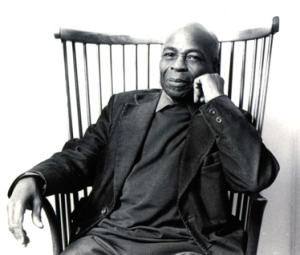
Hushed was the world
And oh, dark agony that suspense shook upon us
While hate came flooding o’er your wide savannas
Plunging pestilence against you –
All that stood to state: “Where men meet
There meets one human race!”
Therefore did men from Moscow to the Arctic
Rounding Vladivostok to the South where Kazbek lifts its peak
Still work and working waited news of Stalingrad
And from Cape to white Sahara
Men asked news of Stalingrad
Town and village waited what had come of Stalingrad
The tom-tom beat across thick forest
While every evening at Palava
Old men told of Stalingrad
The gauchos caught the pampas whisper
The windswept hope of Stalingrad
And in the far Canadian north
Trappers left their baiting for the latest out of Stalingrad
In the factories and coal fields
Each shift waited what last had come from Stalingrad
While statesmen searched the dispatch boxes
What they brought of Stalingrad
And women stopped at house work
Held their children close to hear
What was afoot at Stalingrad
For well men knew that there
A thousand years was thrown the fate of the peoples
Stalingrad, oh star of glory
Star of hope, oh star of flame
Oh what a midwife for this glory
Take for the pattern Pavlov and his men
A soviet soldier and his nine companions
Who full seven weeks sleepless by night and day
Fought nor gave ground
They knew that with them lay
That where men meet should meet one human race
Carpenters who had built houses
Wanted only to build more
Painters who still painted pictures
Wanted only to paint more
Men who sang life strong in laughter
Wanted only to sing more
Men who planted wheat and cotton
Wanted only to plant more
Men who set the years in freedom
Sure they would be slaves no more
They spoke peace to their neighbours in tilling
For in peace they would eat their bread
Uzbeks, Tatars, Letts, Ukrainians
Russians, Muscovites, Armenians
Who ringed forests wide around arctic
Brought sands to blossom, tundras dressed for spring
These kept faith in Stalin’s town
We may not weep for those who silent now rest here
Garland these graves
These lives have garlanded all our remaining days with hope
Stalingrad, oh star of glory
Star of hope, here spread your flame
Now when news broke that Stalingrad
Still lives upon the banks of Volga
That Stalingrad was still a Soviet town
Then the turner flung his lathe light as a bird
And the gaucho spread his riot in the pampas
For this news of Stalingrad
The tom-tom beat wild madness
When the elders brought Palava these tidings out of Stalingrad
The English housewife stopped her housework
Held her child close and cried aloud
Now all men will be free!
And from Good Hope, black miners answered
This will help us to be free!
In the prison camps of Belsen
Sick men rounded from their guards
Now life was certain
Soon all men would be free
New light broke upon Africa
New strength for her peoples
New strength poured upon Asia
New hope for her peoples
America dreamed new dreams
From the strength of her peoples
New men arose in Europe
New force for her peoples
Once more they stand these men
At lathe and spindle
To recreate their hours and each new day
Bid houses rise once more in Soviet country
Men ring forests wide round arctic
Move rivers into deserts
And with high courage
Breed new generations
For still the land is theirs
Uzbeks, Tatars, Letts, Armenians
Caucasians, Muscovites, Crimeans
Still they speak peace to their neighbours at tilling
To all the wide world
And men come near to listen
Find by that day of Stalingrad
That this voice is theirs
Then Red Star spread your flame upon me
For in your flame is earnest of my freedom
Now may I rendezvous with the world
Now may I join man’s wide-flung diversity
For Stalingrad is still a Soviet town
Who was Peter Blackman?
Peter Blackman was born in Barbados to working class parents in 1909 and received an elite colonial education at one of the island’s top schools thanks to a church scholarship. He later studied theology at Durham University. After becoming an Anglican priest he travelled to Gambia in 1935 as a missionary but returned to England converted to communism, so appalled was he at the racism of the church that saw Africans made to sit at the back of the congregation. He settled in London in 1937 throwing himself into campaign groups like the League of Coloured Peoples and helped out at the Communist Party’s offices. During the war, he helped assemble Wellington bombers and would later write movingly of the defeat of German fascism and the hope that this represented for the world. In 1949, he organised Robeson’s tour of Britain and accompanied him to Moscow and Warsaw. The two were firm friends and Robeson was a frequent visitor to Blackman’s home in Heath Hurst Road, Hampstead.
(information reproduced from Wikipedia, with thanks)
Comments are closed, but trackbacks and pingbacks are open.